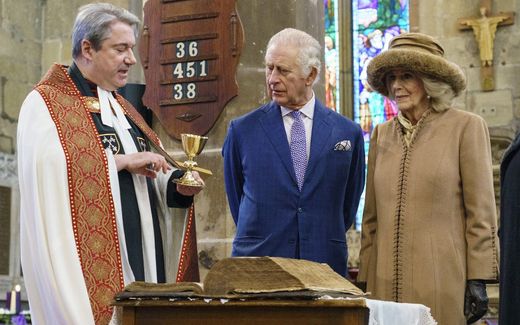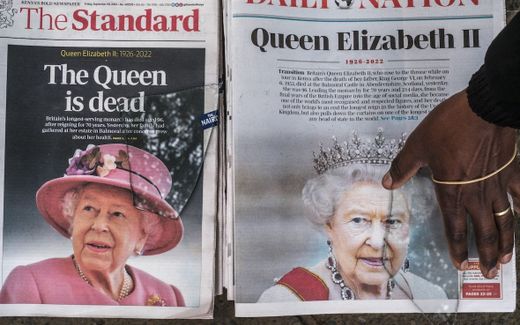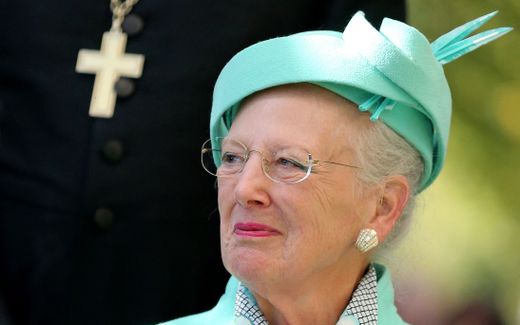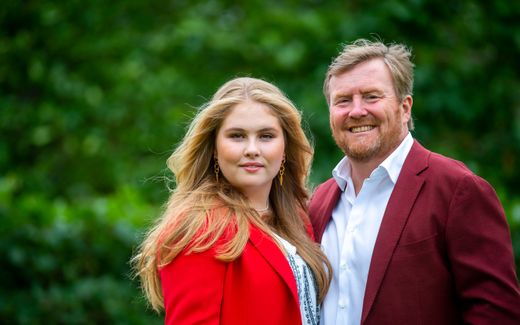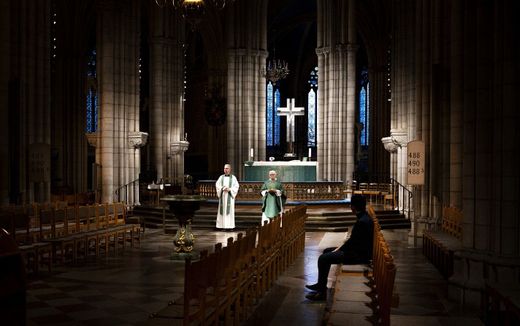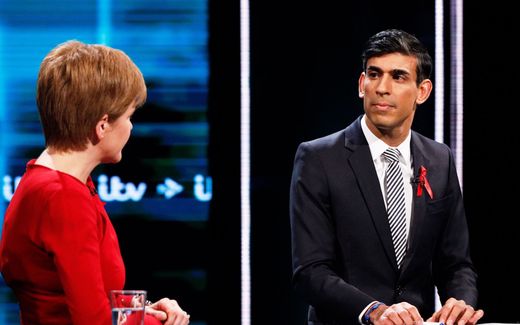Five reasons why it is a privilege to live in a monarchy
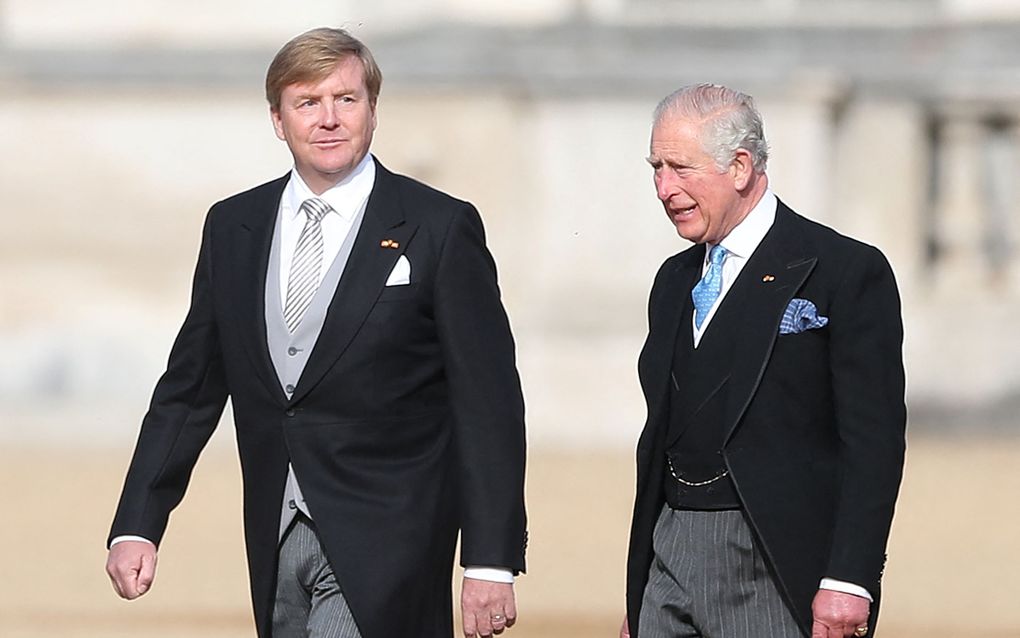
The Dutch King Willem-Alexander (left) with the (then) Prince Charles of Britain in October 2018. Photo AFP, Daniel Leal
Opinion
Many people say that a royal house no longer fits in our modern time. Yet, that is nonsense. Look at Britain this weekend. People enjoy King Charles’ coronation much more than the installation of a president.
Remember the week after the death of Queen Elizabeth last autumn. People from all over the country came to Edinburgh and London to say farewell to the national mother. All over the planet, people were astonished by the reverence surrounding the events. On Twitter and other social media, you can still look for the discussions about the Christian atmosphere in which the Queen was remembered.
As someone living in a monarchy, I can understand the atmosphere in Britain better than someone from a republic. With this, I give five reasons why it is not out of date to have a monarchy.
1) The king is a symbol of unity
In many countries, there is a fear of polarisation in society. Climate change, immigration and terrorist threats split people instead of bringing them together. Political leaders do not make this better; on the contrary. And the media don’t feel a calling to be constructive either.
In such a situation, a symbol of unity is needed. King Charles knows that his role is to bring the nation together. Not only in England & Wales but also in Scotland and Northern Ireland.
Since Brexit and the growing independence movement in Scotland, there has been new debate about the future of the (non-)United Kingdom. The monarch cannot solve that problem. The only job he has is to represent all of them. And to give all groups the feeling that he is listening and understanding.

Who else could do this? All of us are part of the polarisation. The monarch must transcend all the differences.
The monarch is not the person from whom the people expect solutions. He or she does not stand above the law – but he does stand above politics. All the voices in Westminster House are just noise to him. He is led by the old truth that “knowledge speaks, but wisdom listens”. Nothing is more valuable in a polarised society than this.
2) Royalty connects the present with the past
Of course, we don’t live in the past. But the past is not over. Otherwise, we would not celebrate the end of the Second World War this week and next week.
History has made us what we are. The reason why we speak English, Spanish or German is simple: history. And why is King Charles crowned in an Anglican liturgy and not in a Presbyterian or Lutheran service? Simply because of history. And why is he named Charles III? Only because numbers I and II have been there long before him.
The British king represents almost 1,000 years of English history, from 1066 onwards. And everything that has happened since belongs to his heritage (whether he likes it or not).
In modern times, things are going so fast that we might lose the sense of history. But it will help us to remain stable in the contemporary waves. It might not be a virtue to be unfashionable. But it is no virtue either to blow with all the winds. The monarchy can help to make the historic heritage more visible.
3) Royalty guarantees continuity
In a rapidly changing world, you need a guarantee that some things remain the same. The Bank of England gives that guarantee, and the monarchy is solid too.
The first reason for this is simple: the monarch stays much longer in office than other leaders. King Charles’ mother, Queen Elizabeth, served for over 70 years. Winston Churchill was one of her first Prime Ministers; she ended with (the less known) Liz Truss.
In my home country, the Netherlands, the House of Orange has always stood for the freedom of the Protestant faith. As an Evangelical Christian, of course, I would wish to know more about the personal beliefs of the King and Queen. They wisely keep that private. So, we don’t know whether they pray and study the Bible. From what we can witness, we can conclude that they are not the most steadfast churchgoers. But still, they publicly stand for the tradition of Protestantism. And we will remind them of that if things change.
In Britain (especially in England), the link between church and monarch is much closer. King Charles is even head of the Church of England. It might not be clear what this means exactly. But the least we can expect is that he knows and defends the church’s teaching. A better connection with the historical past does not exist.
4) Monarchy stimulates better behaviour
I will never say that a republic with a president does not work. Of course, it does. It is just a different model.
But almost all elected presidents follow their personal political agenda. And that does not always make a civilised impression.
Of course, I won’t speak about former US President Trump. He never stepped out of the dirty campaigning modus. He is just a bad example of a statesman.
But are the other US presidents much better? They are part of a hostile and toxic two-party culture – and they flourish in that environment. Although many Americans feel some pride in speaking about the White House, many of them are ashamed of the politics that flow from it.
The atmosphere is not much better in European republics with an elected president. The present President Macron of France might be the most civilised of many. Still, it is questionable whether he is really a head of state that unites the French nation.
In a royal environment, the behaviour is usually better. Again, in my country, the coalition formation after general elections was supervised by the Queen, as head of state. Some years ago, politicians changed the system so that the Lower House itself would take the lead. The result is that the formation process is full of chaos and takes much longer. Instead of style and reverence (for the monarch), there is political envy now (toward each other).
5) A monarch is (much) cheaper than a president
Of course, a king costs money. He needs a house and a household. That is never free or cheap.
Since the monarch is the head of state, it may cost a bit. He is the face of the country. That is a valuable thing. The royal palaces are not only a place to live but also part of the national beauty. Our cities would be very bleak if there were only functional buildings without beauty.

One of the most expensive things nowadays is security. In that respect, elected presidents are much more costly. Personally, they are more controversial, and for that reason, they attract insecurity.
On the other hand, the number of security guards reflects the self-image of the leader. The higher you think about yourself, the more bodyguards you hire.
Of course, King Charles deserves protection. But like most monarchs, he knows his place and does not attract so much controversy as others.
And the good thing about money is that coins are round: they roll from one to another. The painter of the palace, the chauffeur of the royalty and even the gardener, they all are happy. They spend the royal money directly on a pair of shoes for their husband or wife, a bicycle for their children, and a good newspaper subscription. Spending money on the monarchy is not flushing it down the toilet. It is an investment in the national economy so that other people can profit.
Therefore, we congratulate the Brits with their new king. And we pray for everyone, including the republicans.
Evert van Vlastuin (1972) has been working as a journalist from the early 90s.

He has interviewed several Nobel Peace Price winners as the former South African president F. W. de Klerk and two from Northern Ireland, John Hume and David Trimble.
From 2001, he worked as a foreign news reporter for the Dutch Reformed Daily. Since 2021, he works as managing editor for the start-up CNE.news.
Respond to Evert by e-mail.
Related Articles


